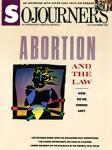The Vietnam War is still killing people in Southeast Asia. The U.S. refusal to put to rest its enmity against Vietnam has created conditions that may lead directly to a renewal of civil war in the neighboring country of Cambodia.
Vietnamese troops, which have occupied Cambodia for 10 years, were scheduled to be withdrawn at the end of September. An international conference convened in Paris this August to discuss Cambodia's fate in the wake of the withdrawal foundered on one key issue: the role the murderous Khmer Rouge would play in the interim government of Cambodia. With no agreement reached at the conference, the struggle over the country's fate returns to the battlefield.
The United States sought to have its cake and eat it too at the Paris talks. While proclaiming an aversion to the Khmer Rouge forces, high-level State Department representatives -- including Secretary of State Jim Baker -- supported Prince Norodom Sihanouk, who heads a coalition that includes the Khmer Rouge, in his contention that "respectable" representatives of the Khmer Rouge should be allowed into the interim government, and that they should then contest the free election that would follow. Khieu Samphan, the Khmer Rouge "respectable" representative at earlier talks on Cambodia, was one of the authors of the forced evacuation of Cambodian towns during Pol Pot's reign of terror.
For two decades, the United States has been a primary force in making Cambodia's bed, but it is the Cambodians who have had to sleep in it. Richard Nixon and Henry Kissinger began an air war against Cambodia in 1969, followed by an invasion the next year that devastated Cambodian society, causing the death of nearly as many Cambodians as were later killed by Pol Pot's Khmer Rouge. The destruction of the formerly peaceful country by a half-million U.S. bombs set the stage for the emergence of the genocidal Khmer Rouge, who attempted to eradicate any trace of Western influence by engaging in the worst blood bath since Adolf Hitler -- a scourge that was only ended by the 1979 invasion by Vietnam.
Since that time, still piqued by the loss of the Vietnam War, the United States has continued to recognize the Khmer Rouge as Cambodia's official representatives at the United Nations. The politics of the Vietnam syndrome, it appears, has created the most abhorrent bedfellows of them all.
Some Cambodians have challenged the right of outsiders to determine their future, especially regarding the role of the Khmer Rouge. "The world is trying to impose a formula, to foist the authors of genocide upon Cambodia," said former prime minister In Tam. "It's the Cambodian people who bore the consequences of Pol Pot, and the outside world has no authority, and no moral authority, to impose such conditions on the Cambodian people."
Meanwhile, Vietnam's hand-picked president of Cambodia, Hun Sen -- who began as a puppet but is now emerging as somewhat of an original and independent thinker in his own right -- insisted that members of the U.S.-backed opposition "renounce the policy of genocide and break with Pol Pot."
Prince Sihanouk has allied himself with the Khmer Rouge because, he said, they would be easier to control "in the tent" than if they were given no role in the post-withdrawal government. U.S. State Department spokesperson Richard A. Boucher praised Sihanouk for "demonstrating admirable flexibility on the question of power-sharing" with the Khmer Rouge. "Unfortunately," Boucher said, Sihanouk's "reasonable attitude has not been reciprocated by Hanoi or the Phnom Penh regime."
SHARING POWER WITH THUGS like Pol Pot, regardless of the political or military rationale, is not a "reasonable attitude." The United States is to be condemned for its role in torpedoing the Paris conference.
But the United States is not alone in deserving blame for the failure of the talks and the escalating violence in Cambodia. China, in another example of Tiananmen Square morality, has been the primary supporter of Pol Pot's forces, mainly because they are the enemy of the Vietnamese. Chinese-Vietnamese enmity goes back 2,000 years, but it is now exaggerated because of Vietnam's status as a Soviet client state. A friend of the Soviet Union, current alignments dictate, is an enemy of China.
The Chinese-Soviet rivalry showed signs of rapprochement this spring that was to have culminated in President Gorbachev's May visit to Beijing, which was swallowed up by the events of Tiananmen Square. Any hope of progress between the two communist superpowers has been put on hold while the Chinese persist in their bloody purge.
The Chinese did hint at Paris that they might pull back support for the Khmer Rouge as part of an overall settlement. But in the wake of the failure to reach accord at the conference, such a step seems unlikely.
The record of the Vietnam-backed Hun Sen government, for its part, is decidedly mixed. On the one hand are reports of systematic torture and other human rights abuses during the decade of Vietnam's control. On the other hand are encouraging signs of liberalization, including significant land reform and increased freedom for a flourishing Buddhist church.
The consensus among Cambodians now seems to be that the Vietnamese are much less a threat than the Khmer Rouge. Any agreement that ensures Pol Pot's forces a foot in the door after Vietnam's pullout -- like the position taken by the United States at the Paris conference -- only promises a return to the killing fields.
It is time for the United States government to admit that the Vietnam War is over, to swallow its wounded pride, and to take a stand -- even with our former enemy -- in a united front against the malignity of the Khmer Rouge. Pol Pot's holocaust -- like that of the Nazis -- can never be forgotten, or we are doomed to see it repeated.
Jim Rice is editor of Sojourners.

Got something to say about what you're reading? We value your feedback!
